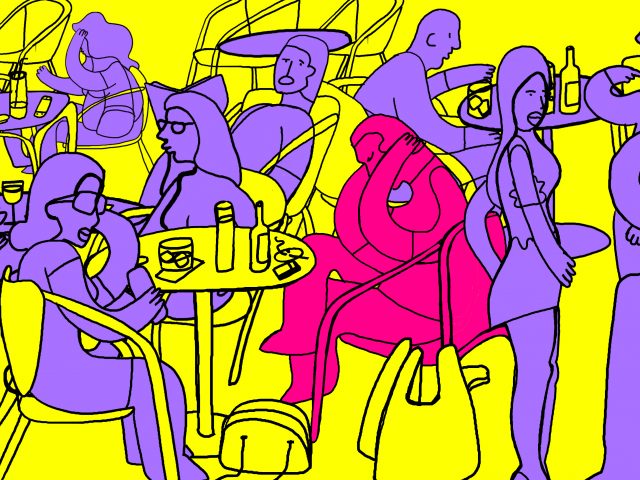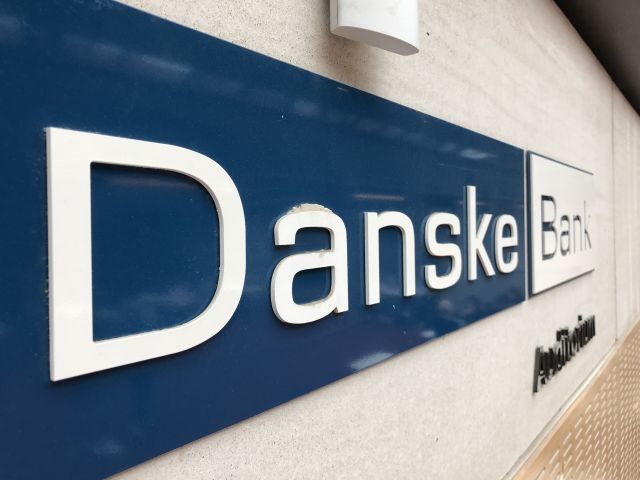The Danish grading system is up for discussion… again

The Danish grading system is up for discussion yet again. However, this time it looks like it could change, says the President of CBS Students, Mikkel Nielsen.(Photo: Lucas Liang)
The Danish government wants to change the 7-point grading scale in an attempt to curb the grade-race and perfectionist culture among students. The President of CBS Students, Mikkel Nielsen welcomes a new grading system. However, more feedback is needed to make sense of the grades. Student Guidance counselor, Thomas Gylling argues that adding more grades to the scale could reduce some of the pressure that students are under.
Since the introduction of the 7-point grading scale in 2007, the grading system has been up for discussion. Now, the Danish government has reignited the debate by proposing a change to the current system.
“It’s worrisome that students in higher education zero in on avoiding mistakes. And that the large gaps between the grade points is what’s driving the grades up even further, so that it’s the norm that everyone is expected to get a 12,” says Tommy Ahlers, the Minister of Higher Education and Science in a press release and continues:
“We need the younger generation to become as skilled as possible, so that they dare to take chances and challenge themselves throughout their education. We need a grading system that supports that. Therefore, we’ll come up with suggestions on how to adjust the grade point scale.
The proposed changes to the grading system, which aren’t concrete yet, are based on a recently published evaluation of the grade point scale.
According to the Ministry for Higher Education and Science, the main conclusions of the evaluation are that the grading system functions well overall. However, the large gaps between grades 4,7 and 10, the lack of opportunities to reward extraordinary performance, and the inflation of high grades are all factors that contribute to making the system insufficient, argues the committee responsible for the evaluation.
“It’s very positive that the grading system is up for discussion again, and it seems that the commitment to change it is greater than ever,” says Mikkel Nielsen, the President of CBS Students and points out the problems of the current system:
“As it is now, the grading system is designed to identify mistakes. The moment you enter the examination room, you’ve got a 12. But depending on what you say, you lose grade points. This approach of not rewarding the presentation creates negativity should you not get a 12. And that’s a mentality and practice we need to change.”
At the moment, the guidelines, which follow the 7-point grading scale, specify that the examiners start from the top and move down the scale during the examination. But it should start from the bottom instead, argues Mikkel Nielsen.
Can a new grading system ease the extreme focus on grades?
In relation to grade points 4, 7 and 10, the evaluation concludes that they are too far apart and can be tricky for teachers and examiners to use. Furthermore, students consider 10 and 12 to be the only good grades on the scale. And this stresses them out, argues Thomas Gylling, Student Guidance Counselor at CBS.
“In the past few years, we’ve seen an extreme focus on grades. But the grading system can’t solely be blamed for this, although it does have something to do with it,” he says and describes the main problem with the grading system:
“The gap from 7 to 10 is crucial to some students, and a lot of them get upset if they’re given a 7. Although, 7 is given for a good and solid presentation. So, chasing a 10 makes a lot of students feel stressed out, and a grade point between 7 and 10 would definitely come as a relief to some.”
I dream about a grading system that not only gives a number, but incorporates feedback too
Mikkel Nielsen
Thomas Gylling explains that a new grading system cannot curb the grade-race or perfectionist culture itself. It’s something that CBS must help to change too.
“Here at CBS, we work very seriously on how we can affect the culture among students. What we want are happy students who don’t let their pursuit of top grades overshadow learning and development, and we try to tell them that companies don’t hire transcripts, they hire people,” he says.
Students still lack feedback
Mikkel Nielsen agrees with the evaluation that the gaps between grades 4,7 and 10 are too big, making it difficult for a student to improve the grade during an examination. Introducing new grade points would be a way to solve the problem. However, Mikkel Nielsen also wish for something else.
“I dream about a grading system that not only gives a number, but incorporates feedback too. That means that the students would understand the reasoning behind their given grade,” he says.
The chairperson the National Union of Students, (Danske Studerendes Fællesråd – DSF), Sana Mahin Doost argues that the lack of feedback is the bigger issue by far.
“There are issues with the grading system, but the fact that students aren’t given feedback and often don’t know why they’ve been given a certain grade is a highly neglected issue. That’s the biggest challenge,” she says to the Danish newspaper Politiken and continues:
“At the moment, the grade stands on its own and this is part of why we’re seeing increased performance anxiety and fear of failure because you’re not told anything else other than you’re a 4 or 7.”
Re-introduction of the grade point 13 – some say yes, others say no
As the grading system is up for discussion yet again, the re-introduction of the old grade point 13 is being suggested.
Some students and teachers miss the grade point 13, which was given for extraordinary performance. However, Mikkel Nielsen points out that several challenges would emerge if was reintroduced:

“First of all, the old grading system was canned because it wasn’t compatible with the international grading system. And the grading system has to be comparable with the international system,” he says and continues:
“If we really want a grade point that recognizes top performance, we should consider having a Danish thing only, that doesn’t necessarily appear on the diploma. Instead, it would be a personal achievement. Otherwise, we’ll experience yet more study programs with sky-high entry requirements.”
Thomas Gylling points out that the grade point 13 was given as an exception, and it was even harder to achieve at universities.
“I understand if some students and teachers miss the grade point 13, and would be happy if it was reintroduced. But it makes no difference, really. I’m not an expert in developing grading systems, but maybe it would make more sense to reintroduce the grade point 11. It’s a rare grade, but not unachievable,” he says.
The government is now working to come up with concrete initiatives on how the grading system can be changed within the framework of the existing scale.







































































































































Comments